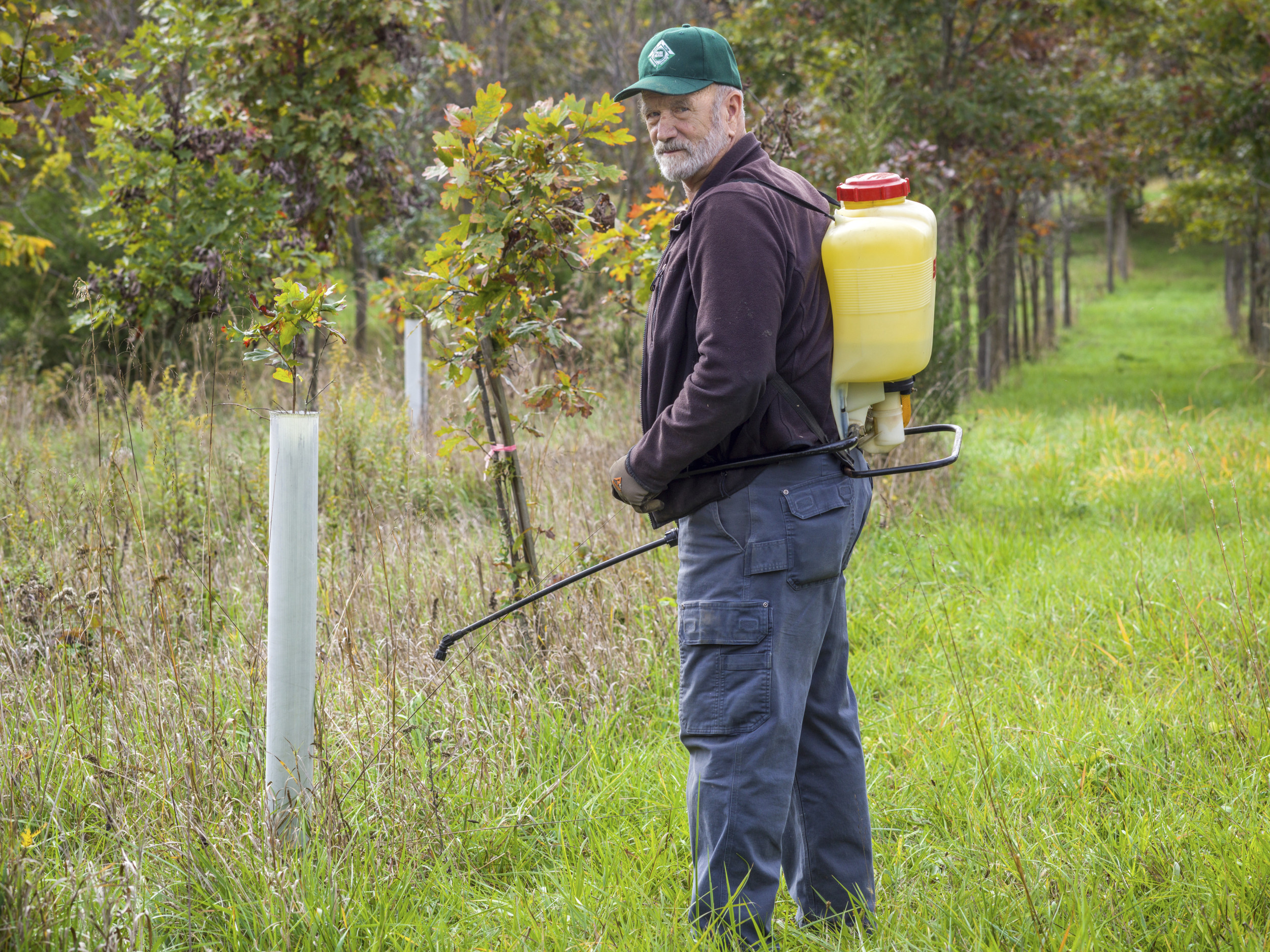
Health and Human Services Secretary Robert F. Kennedy Jr. raised his concerns about widely used herbicides containing glyphosate and atrazine, linking them to chronic disease, in a Thursday report by the Make America Healthy Again (MAHA) Commission.
Why It Matters
The report highlights two commonly used weed killers—glyphosate, the active ingredient in Roundup, and atrazine, another widely used herbicide for weed control.
In 2015, the International Agency for Research on Cancer classified glyphosate as “probably carcinogenic to humans.” But the U.S. Environmental Protection Agency (EPA), which has reviewed and reevaluated its status, said in 2020, “glyphosate is unlikely to be a human carcinogen.” There are conflicting opinions about the toxicity of pesticides and their potential health risks, as well as their impact on the food system and environment. Herbicides are classified as a type of pesticide.
President Donald Trump signed an executive order in February establishing the Make America Healthy Again Commission, which pledged to produce a report within the president’s first few months back in office. The assessment, released Thursday, aims to lay the groundwork for understanding what Kennedy calls the “magnitude of crisis” in American children’s declining health and the factors driving it.
As the nation’s top health official, Kennedy has repeatedly raised concerns about chemicals in food and the environment and their connection to chronic disease. The report’s first section focuses on the rise of ultra-processed foods, while the second addresses the “cumulative load of chemicals in our environment.”
What To Know
The 69-page assessment took issue with common herbicides, saying that children are exposed to them through food, water, dust, lawn treatment and household sprays.
“The cumulative effect of multiple chemical exposures and impact on children over time is not fully understood,” the report says, adding that data and research on the “complex mixtures of chemicals” children encounter have yet to be fully explored.
Kennedy has long opposed pesticides, having helped win a 2018 lawsuit filed against Monsanto, the original producer of Roundup.
Edwin Remsberg / VWPics via AP Images
Pesticides are widely used in farming across the U.S. In April, a group of 79 Republicans, including some Senators like Chuck Grassley of Iowa, wrote a letter to Kennedy, saying that “regular testing by DFA and USDA finds that more than 99% of all pesticide residues meet extremely conservative limits established by EPA.”
As of 2017, the United States Geological Survey reported, “about 1 billion pounds of conventional pesticides are used each year” throughout the country.
The MAHA Commission’s assessment received expected blowback from agricultural and farming associations, which largely rely on pesticides for their livelihood.
What People Are Saying
The National Corn Growers Association said in a statement: “The Make America Healthy Again Report is filled with fear-based rather than science-based information about pesticides. We are deeply troubled that claims of this magnitude are being made without any scientific basis or regard for a long history of EPA expert evaluations of these products.”
American Soybean Association said in a statement: “The American Soybean Association strongly rebukes the May 22 Make America Healthy Again Commission report for being brazenly unscientific and damaging to consumer confidence in America’s safe, reliable food system. Should the administration act on the report—which was drafted entirely behind closed doors—it will harm U.S. farmers, increase food costs for consumers, and worsen health outcomes for all Americans. ASA calls on President Trump, who has long been a friend of farmers, to step in and correct the Commission’s deeply misguided report.”
Dr. Michelle Perro, pediatrician, author and activist for children’s health, told The New Lede: “While I support and applaud the MAHA focus on chronic diseases affecting our children, it is disheartening that it took us decades to get here. The environmental toxic impacts on our children’s well-being has been known for decades, but not acted upon until now.”
The National Council of Farmer Cooperatives said in a Thursday statement: “We have serious concerns over the assessment’s allegations about pesticides. The report includes statements that do not reflect the wealth of evidence developed over decades by federal agencies such as the EPA and USDA on the safety of crop inputs and food production methods. These institutions have consistently reaffirmed the safety and efficacy of the systems that help feed our country and the world.”
American Farm Bureau President Zippy Duvall said in a statement: “It is deeply troubling for the White House to endorse a report that sows seeds of doubt and fear about our food system and farming practices, then attempts to celebrate farmers and the critical role they play in producing the safest food supply in the world.
Farmers are identified as ‘critical partners,’ yet were excluded from development of the report, despite many requests for a seat at the table. The report also expresses a desire to ensure farmers continue to thrive, but undermining confidence in our food system directly contradicts that noble goal. The report spotlights outlier studies and presents unproven theories that feed a false narrative and only then does it acknowledge a mountain of evidence about the safety of our food system.”
What Happens Next
The report pledges to support “gold-standard scientific research” as part of its effort to address chronic disease. The assessment marks the first step toward developing the commission’s strategy, which is due 180 days after Trump’s February executive order establishing the panel.
